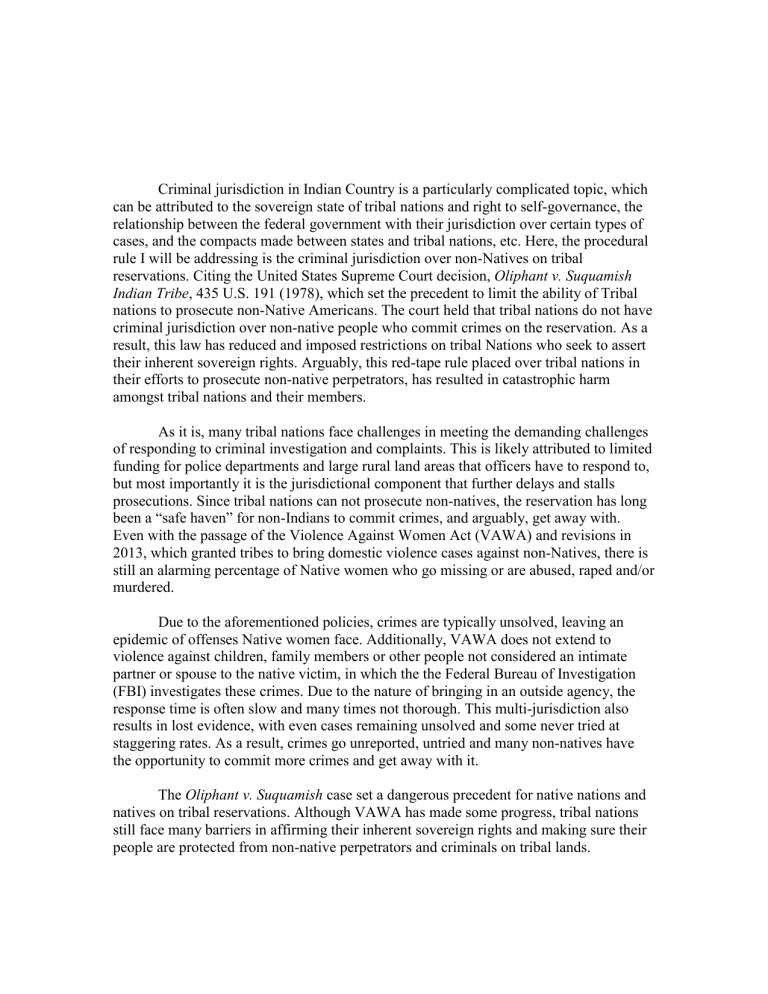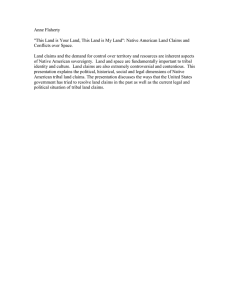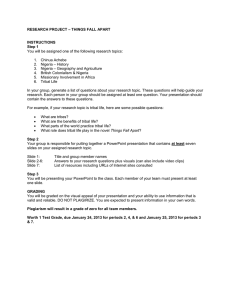
Criminal jurisdiction in Indian Country is a particularly complicated topic, which can be attributed to the sovereign state of tribal nations and right to self-governance, the relationship between the federal government with their jurisdiction over certain types of cases, and the compacts made between states and tribal nations, etc. Here, the procedural rule I will be addressing is the criminal jurisdiction over non-Natives on tribal reservations. Citing the United States Supreme Court decision, Oliphant v. Suquamish Indian Tribe, 435 U.S. 191 (1978), which set the precedent to limit the ability of Tribal nations to prosecute non-Native Americans. The court held that tribal nations do not have criminal jurisdiction over non-native people who commit crimes on the reservation. As a result, this law has reduced and imposed restrictions on tribal Nations who seek to assert their inherent sovereign rights. Arguably, this red-tape rule placed over tribal nations in their efforts to prosecute non-native perpetrators, has resulted in catastrophic harm amongst tribal nations and their members. As it is, many tribal nations face challenges in meeting the demanding challenges of responding to criminal investigation and complaints. This is likely attributed to limited funding for police departments and large rural land areas that officers have to respond to, but most importantly it is the jurisdictional component that further delays and stalls prosecutions. Since tribal nations can not prosecute non-natives, the reservation has long been a “safe haven” for non-Indians to commit crimes, and arguably, get away with. Even with the passage of the Violence Against Women Act (VAWA) and revisions in 2013, which granted tribes to bring domestic violence cases against non-Natives, there is still an alarming percentage of Native women who go missing or are abused, raped and/or murdered. Due to the aforementioned policies, crimes are typically unsolved, leaving an epidemic of offenses Native women face. Additionally, VAWA does not extend to violence against children, family members or other people not considered an intimate partner or spouse to the native victim, in which the the Federal Bureau of Investigation (FBI) investigates these crimes. Due to the nature of bringing in an outside agency, the response time is often slow and many times not thorough. This multi-jurisdiction also results in lost evidence, with even cases remaining unsolved and some never tried at staggering rates. As a result, crimes go unreported, untried and many non-natives have the opportunity to commit more crimes and get away with it. The Oliphant v. Suquamish case set a dangerous precedent for native nations and natives on tribal reservations. Although VAWA has made some progress, tribal nations still face many barriers in affirming their inherent sovereign rights and making sure their people are protected from non-native perpetrators and criminals on tribal lands.




